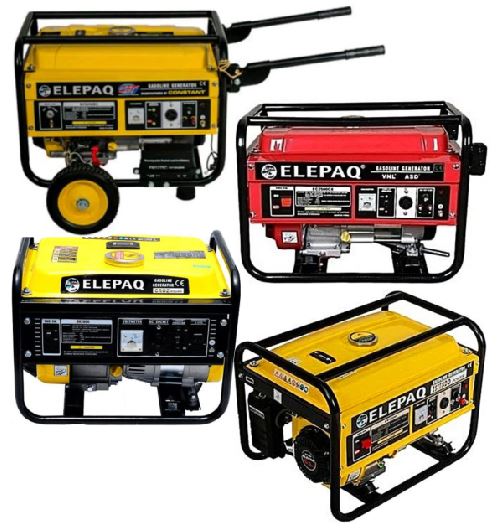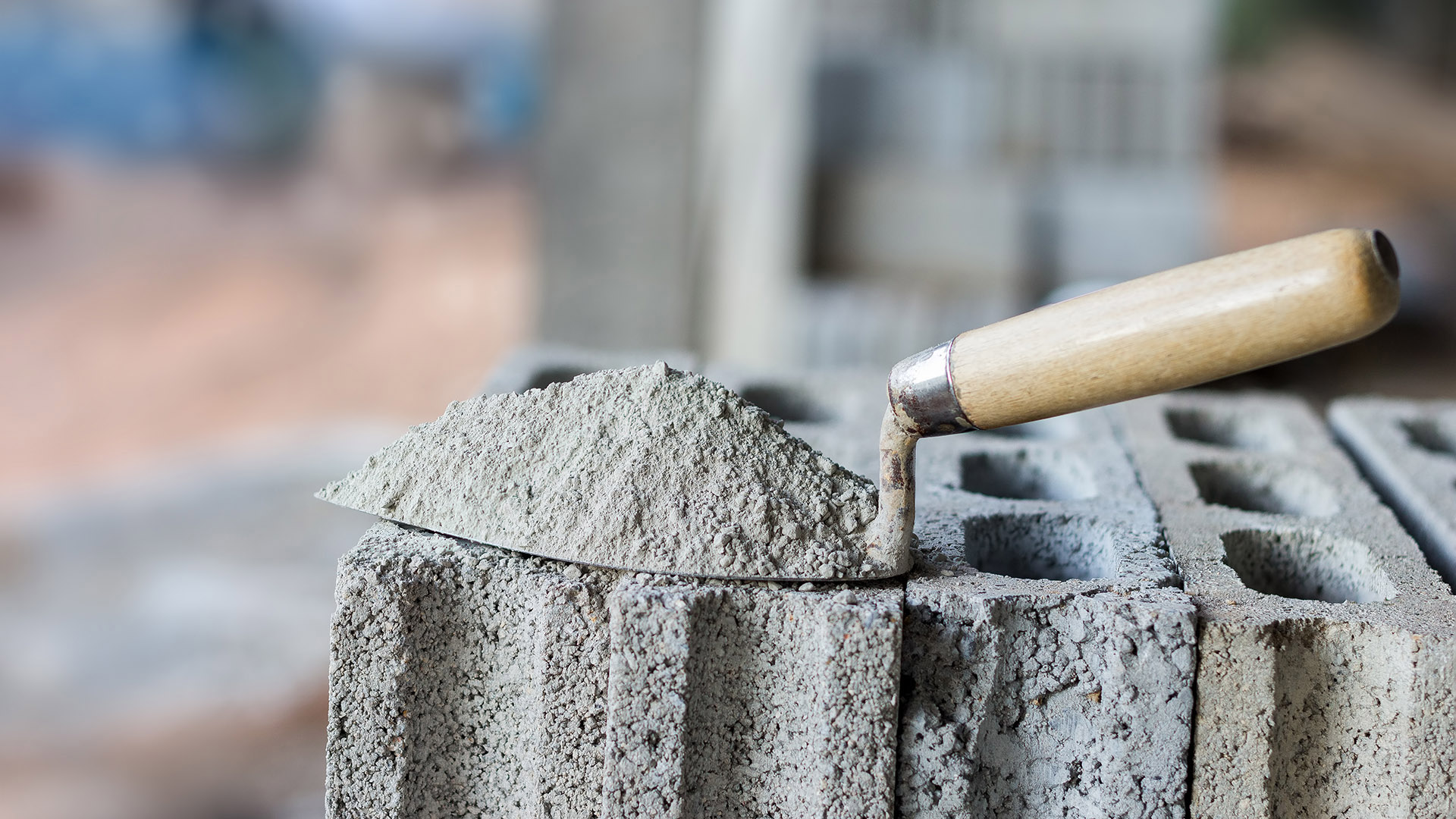From Local Craftsmanship to Global Supply: The Success Story of Nigerian Broom and Brush Manufacturers
From Local Craftsmanship to Global Supply: The Success Story of Nigerian Broom and Brush Manufacturers
Step into the fascinating world of Nigerian broom and brush manufacturers, where local craftsmanship has evolved into a global success story! From humble beginnings in vibrant markets to expanding their reach across continents, these skilled artisans have triumphed against all odds. Join us on an extraordinary journey as we delve into the intricate artistry behind every bristle, uncovering how this traditional trade has transformed Nigeria’s economic landscape. Get ready to be inspired by the resilience, creativity, and unwavering spirit that fuels this remarkable tale of innovation and excellence!
Introduction to the Nigerian Broom and Brush Industry
The Nigerian broom and brush industry has a rich history dating back centuries. Traditional brooms made from natural materials such as palm fronds, grasses, and bamboo have been used for cleaning purposes in Nigerian homes for generations. However, with the advent of modern technology and the increasing demand for hygienic and durable cleaning tools, the industry has evolved into a thriving market that supplies not only to local consumers but also to global markets.
Nigeria is one of the leading producers of brooms and brushes in Africa, with an estimated annual production of over 20 million units. The industry employs thousands of skilled craftsmen who use their expertise and creativity to produce high-quality products that meet both local and international standards.
One of the key factors contributing to the success of the Nigerian broom and brush industry is its availability of raw materials. The country’s diverse landscape provides an abundant supply of natural fibers such as coconut husks, sorghum stalks, corn silk, and palm leaves which are used in making traditional brooms. In addition, synthetic fibers like nylon are also readily available for making modern brushes.
Another significant factor that has contributed to the growth of this industry is its strong cultural roots. Brooms hold a special significance in Nigerian culture as they are believed to bring good luck and ward off evil spirits when placed at home entrances or during traditional ceremonies. This cultural attachment has led to a steady demand for locally made brooms even as modern cleaning tools become more prevalent.
Moreover, with advances in technology and machinery, Nigerian manufacturers have been able to improve their production processes while maintaining their traditional methods. This has resulted in increased efficiency without compromising on quality or authenticity.
The demand for Nigerian-made brooms and brushes extends beyond domestic borders. Many international companies source these products from Nigeria due to their superior quality at competitive prices. In fact, some manufacturers have successfully penetrated international markets by exporting directly or through collaborations with foreign partners.
The Nigerian broom and brush industry is a testament to the country’s rich cultural heritage, skilled craftsmanship, and adaptability to changing market demands. With its continued growth and success on both local and global levels, it is clear that this industry has a bright future ahead. In the following sections of this blog article, we will delve deeper into the journey of how Nigerian broom and brush manufacturers have managed to establish themselves as key players in the global supply chain.
History and Evolution of Local Craftsmanship
The history and evolution of local craftsmanship in Nigeria can be traced back to ancient times. The country has a rich cultural heritage and a long-standing tradition of handicrafts, which have been passed down through generations. Local craftsmen have always played a vital role in preserving this heritage by creating unique and high-quality products using traditional techniques.
One such traditional craft that has stood the test of time is the art of broom and brush making. In Nigeria, brooms and brushes have always been an essential part of daily life, used for sweeping floors, cleaning utensils, and even as decorative items during ceremonies and festivals. The earliest forms of these items were made from natural materials like palm fronds or animal hair tied together with twine.
With the colonial period came new influences on Nigerian craftsmanship. European settlers introduced modern tools and machinery, leading to innovations in the production process. This allowed for faster production while maintaining the handcrafted quality that was highly valued by consumers.
However, it was not until the 1960s that local craftsmen began to organize themselves into formal associations to protect their interests and promote their traditional skills. This led to the establishment of cooperatives such as “Owu Iyeye,” which translates to “the brotherhood that produces brooms.” These cooperatives brought together skilled artisans who shared knowledge and expertise while also providing them with access to raw materials at reasonable prices.
In recent decades, there has been a surge in demand for locally made brooms due to their durability and affordability compared to imported alternatives. As a result, many small-scale businesses specializing in broom-making have emerged across different regions in Nigeria.
Today, Nigerian broom-makers have taken their craft beyond just meeting local demands; they are now supplying their products globally. With advancements in technology and transportation, these artisans are able to reach international markets through e-commerce platforms or trade fairs organized by government agencies to showcase indigenous products.
The success story of Nigerian broom and brush manufacturers is a testament to the resilience, creativity, and adaptability of local craftsmen. They have managed to preserve their traditional skills while also embracing modern techniques to meet the changing demands of the global market. This has not only contributed to the growth of Nigeria’s economy but has also brought recognition and pride to an age-old craft deeply rooted in the country’s culture.
The Role of Wigmore Trading in Global Supply Chain
The Role of Wigmore Trading in Global Supply Chain
Wigmore Trading is a leading Nigerian company that plays a crucial role in the global supply chain of broom and brush manufacturing. Established in 2005, Wigmore Trading has continuously worked towards promoting and expanding the reach of locally made brooms and brushes beyond the borders of Nigeria.
One of the key roles played by Wigmore Trading is that of bridging the gap between local craftsmen and international markets. The company sources high-quality raw materials from local artisans and manufacturers, ensuring fair prices for their products. This not only supports the livelihoods of these craftsmen but also helps them to improve their skills and techniques to meet global standards.
Moreover, Wigmore Trading acts as an intermediary between local producers and international buyers, facilitating smooth trade relations. With a vast network of connections across different countries, the company enables easy access to international markets for Nigerian broom and brush manufacturers.
Another critical role played by Wigmore Trading is that of quality control. The company has strict quality standards in place to ensure that all products meet global requirements. This includes conducting regular inspections at production sites, implementing best practices for packaging and shipping, as well as providing training to local producers on quality management.
Furthermore, Wigmore Trading also offers logistical support to its clients by organizing efficient transportation methods for bulk orders. This ensures timely delivery of goods while keeping costs at a minimum.
The impact of Wigmore Trading’s efforts can be seen in the significant growth experienced by Nigerian broom and brush manufacturers over the years. With access to international markets through this company, many small-scale producers have been able to expand their businesses and increase their income significantly.
In addition to its contributions towards promoting Nigerian-made products globally, Wigmore Trading also actively supports social causes within communities where it operates. The company has been involved in various initiatives aimed at improving education, healthcare facilities, and other basic amenities for local residents.
Wigmore Trading plays a crucial role in the global supply chain of Nigerian broom and brush manufacturers. Through its efforts, the company has not only helped to promote locally made products but has also contributed towards the growth and development of local communities.
– Partnership with Local Artisans
Partnership with Local Artisans
The success story of the Nigerian broom and brush manufacturers is not only attributed to their determination and hard work, but also to their strong partnership with local artisans. These skilled craftsmen have been instrumental in the growth of the industry, providing a steady supply of high-quality raw materials and contributing to the innovative designs of the finished products.
One of the key benefits of partnering with local artisans is their expertise in sourcing and processing natural materials such as palm leaves, coconut husks, and bamboo. These materials are traditionally used in making brooms and brushes in Nigeria due to their durability and affordability. However, it takes years of experience and knowledge to properly select and prepare these materials for commercial use. The local artisans’ knowledge passed down from generations has proven invaluable in ensuring that only the best quality raw materials are utilized for manufacturing.
Moreover, the partnership with local artisans has also allowed for a continuous stream of fresh ideas when it comes to product design. The traditional techniques used by these skilled workers have been combined with modern machinery and processes by manufacturers to create unique and functional brooms and brushes that appeal to both domestic and international markets. This collaboration between traditional methods and modern technology has resulted in a diverse range of products that cater to different needs.
Furthermore, working closely with local artisans has also provided employment opportunities for many individuals living in rural areas where most natural materials are sourced. By incorporating them into the manufacturing process, they not only earn a fair wage but also contribute towards sustaining their communities’ livelihoods.
This partnership has also fostered a sense of community among manufacturers and artisans as they work together towards achieving common goals – producing quality products while supporting each other’s businesses. This collaborative effort has strengthened relationships within the industry, resulting in better communication channels, efficient supply chain management, reduced production costs, increased productivity, as well as improved product quality.
The success story of Nigerian broom and brush manufacturers is a testament to the power of partnership with local artisans. Their traditional knowledge and skills combined with modern techniques have paved the way for an industry that continues to thrive, providing high-quality products both locally and globally. This alliance has not only benefited the manufacturers but also the communities in which these skilled workers reside, making it a win-win situation for all parties involved.
– Access to International Markets
Access to International Markets:
One of the key factors that has contributed to the success story of Nigerian broom and brush manufacturers is their access to international markets. In recent years, there has been a growing demand for African products in global markets, and the Nigerian broom and brush industry has capitalized on this trend.
The government of Nigeria has played a crucial role in promoting and facilitating international trade for local craftsmen. One of the ways they have achieved this is through various trade agreements with other countries, which have opened up avenues for Nigerian broom and brush manufacturers to export their products worldwide.
Additionally, initiatives like the African Growth and Opportunity Act (AGOA) have also provided opportunities for Nigerian artisans to access international markets. This legislation offers duty-free access to US markets for eligible African countries, including Nigeria. As a result of AGOA, many Nigerian broom and brush manufacturers have been able to increase their exports significantly.
Furthermore, the rise of e-commerce platforms has made it easier for small businesses in developing countries like Nigeria to reach a global audience. Online marketplaces such as Alibaba, Etsy, Amazon Handmade, and eBay have enabled these craftsmen to showcase their products on an international scale without having to invest heavily in marketing or distribution channels.
Another crucial factor that has facilitated access to international markets is technology. With advancements in communication technology and digital tools, these small-scale manufacturers can now interact with potential buyers from different parts of the world directly. They can also receive orders online and fulfill them efficiently using courier services.
Moreover, trade fairs and exhibitions provide valuable opportunities for Nigerian broom and brush manufacturers to showcase their craftsmanship on a global platform. These events attract buyers from all over the world who are looking for unique handmade products from Africa.
The availability of raw materials at competitive prices in Nigeria has also contributed significantly to accessing international markets. The abundance of natural resources such as palm fronds, coconut fiber, bamboo sticks, and wood has enabled local craftsmen to produce high-quality brooms and brushes at affordable prices, making them competitive in the global market.
The access to international markets has been a game-changer for Nigerian broom and brush manufacturers. The support from the government, advancements in technology, and availability of raw materials have all played a vital role in enabling these artisans to expand their reach beyond local markets and achieve success on a global scale.
Impact on Nigerian Economy and Livelihoods
The success story of Nigerian broom and brush manufacturers has not only positively impacted the local industry, but also had a significant effect on the country’s economy and livelihoods. The rise of these indigenous manufacturers has brought about a shift in the traditional narrative of Nigeria being solely dependent on oil exports for its economic growth.
One of the most notable impacts is the boost in job creation and employment opportunities. With over 190 million citizens, unemployment has been a major challenge for Nigeria. However, the emergence of broom and brush manufacturing has provided employment to thousands of Nigerians, especially those living in rural areas where these industries are mostly concentrated. This has helped to reduce poverty levels and improve the standard of living for many families.
Moreover, these manufacturers have also contributed significantly to Nigeria’s export earnings. Prior to their success, Nigeria was heavily reliant on imports for household cleaning tools such as brooms and brushes. However, with the rise of local production, there has been a decrease in importation and an increase in exports, leading to a reduction in trade deficit and an overall improvement in the country’s balance of trade.
This success story has also had a ripple effect on other sectors such as agriculture. Many farmers who previously struggled to make a living from subsistence farming have now found new markets for their raw materials like sorghum and plastic fibers used in broom making. This has not only increased their income but also encouraged them to expand their farms, leading to an increase in agricultural productivity.
Furthermore, there has been an improvement in technology transfer and innovation within this industry. As local manufacturers strive to compete globally, they have invested heavily in research and development resulting in improved production processes and products that meet international standards. This knowledge transfer is valuable not just for this particular industry but also for other sectors looking to improve their technological capabilities.
There is pride among Nigerians seeing locally made products being recognized globally. The success story of Nigerian broom and brush manufacturers has put the country on the map as a producer of quality, durable and affordable cleaning tools. This has not only boosted national pride but also increased consumer confidence in locally made products, leading to further growth for these industries.
The impact of Nigerian broom and brush manufacturers on the economy and livelihoods cannot be overstated. Their success story serves as an inspiration for other local industries to strive for excellence and contribute towards the economic development of Nigeria. With continued support from both the government and consumers, there is no doubt that this industry will continue to grow and make a positive impact on the country’s economy.
Challenges Faced by the Industry
The Nigerian broom and brush manufacturing industry has undoubtedly come a long way since its humble beginnings as a local craft. With an increase in demand for their products both domestically and globally, it is safe to say that these manufacturers have achieved remarkable success. However, this success did not come without its fair share of challenges.
One of the main challenges faced by the industry is the lack of modern technology and infrastructure. Many small-scale broom and brush manufacturers in Nigeria still rely on traditional methods passed down through generations. This can result in lower efficiency, productivity, and quality compared to their counterparts who have access to advanced machinery and equipment.
Moreover, due to inadequate infrastructure such as roads and electricity, transporting raw materials and finished products can be a major hurdle for manufacturers. This leads to delays in production and delivery timelines, making it difficult for them to meet the demands of their customers.
Another significant challenge faced by the industry is the lack of skilled labor. Traditional broom-making techniques require specific skills that are often passed down within families or learned through apprenticeships. However, with younger generations opting for more modern jobs, there is a shortage of skilled workers in the industry. This poses a threat to the sustainability of these traditional manufacturing practices.
In addition to these internal challenges, Nigerian broom and brush manufacturers also face external challenges such as competition from cheaper imported products. The influx of cheap alternatives from countries like China has made it difficult for local manufacturers to compete on price alone.
Furthermore, limited access to financing options makes it challenging for smaller manufacturers to invest in modern technology or expand their operations. Lack of government support or incentives only exacerbates this issue, leaving many businesses struggling to keep up with evolving market trends.
Despite these obstacles, the Nigerian broom and brush manufacturing industry has persevered through determination and resilience. Many businesses have adapted by finding innovative solutions such as forming cooperatives or partnerships with larger companies that provide access to better technology and distribution networks.
While the Nigerian broom and brush manufacturers have faced several challenges in their journey to success, they have also demonstrated their ability to overcome them. With continued efforts towards modernization, skill development, and government support, the industry is well on its way to achieving even greater heights in the global market.
– Competition from Mass Production
Competition from mass production has always been a major challenge for Nigerian broom and brush manufacturers. This is primarily due to the lower costs and faster production rates of mass-produced goods compared to locally handmade products. The rise of industrialization and globalization has made it easier for larger companies with advanced machinery and technology to enter the market, making it difficult for traditional craftsmen to compete.
One of the main disadvantages faced by local craftsmen in Nigeria is their inability to match the prices offered by mass-produced goods. With their limited resources and small-scale production, they are unable to achieve economies of scale, which leads to higher production costs. On the other hand, large corporations have access to advanced technologies that allow them to produce goods at a much lower cost per unit, giving them a competitive edge in terms of pricing.
Moreover, mass-produced brooms and brushes often come with standardized designs and consistent quality assurance measures. This can be seen as a drawback for local craftsmen who pride themselves on creating unique and personalized products. However, with increasing demand for uniformity and conformity in the global market, this becomes a significant disadvantage for traditional manufacturers.
The increase in demand for cheaper products also adds further pressure on local producers who rely solely on manual labor. As they strive to keep up with consumer demands while maintaining fair wages for their workers, they face challenges in keeping their prices competitive against cheaper alternatives produced by machines.
To make matters worse, customers are now more inclined towards convenience which means opting for ready-made items rather than investing time in purchasing handmade ones. This shift in consumer behavior has caused a decline in demand for locally crafted brooms and brushes.
However, despite these challenges posed by competition from mass production, Nigerian broom and brush manufacturers have found ways to sustain their businesses through innovation and adaptation. They have started incorporating modern techniques into their production processes while still retaining traditional craftsmanship methods passed down through generations. By embracing new technologies such as mechanization, they have been able to increase their production capacity and cater to a larger market without compromising on quality.
Furthermore, with the increasing popularity of sustainable and eco-friendly products, there has been a renewed interest in handmade goods. This presents an opportunity for local craftsmen to differentiate themselves from mass-produced goods by highlighting the unique qualities and ethical practices behind their products.
While competition from mass production remains a significant challenge for Nigerian broom and brush manufacturers, they have shown resilience in adapting to changing market demands and incorporating modern techniques into their traditional processes. With continuous innovation and support from consumers who value handmade goods, these local craftsmen can continue to thrive and contribute to the global supply chain.
– Lack of Government Support
One major challenge faced by Nigerian broom and brush manufacturers is the lack of government support. Despite being a vital industry in the country, this sector has not received adequate attention and assistance from the government.
One of the main reasons for this lack of support is the overall neglect of local industries in Nigeria. The government has traditionally focused on oil production as its main source of revenue, leading to a heavy reliance on imported goods rather than supporting domestic manufacturing. As a result, small-scale industries like broom and brush production have been overshadowed and left struggling to compete with cheaper imported alternatives.
The absence of favorable policies and incentives for local manufacturers also adds to the difficulties faced by these craftsmen. Unlike some countries where governments provide financial support or tax breaks for small businesses, Nigerian broom and brush manufacturers are left to fend for themselves without any significant help from the government.
Moreover, many producers struggle with high operating costs due to inadequate infrastructure, such as poor road networks and unreliable electricity supply. This not only hinders their productivity but also increases their overall expenses and makes it challenging to remain competitive in the global market.
Another critical issue is that there is no specific agency or organization dedicated to promoting and supporting traditional craft industries like broom making in Nigeria. While some other African countries have established bodies that focus on promoting their local arts and crafts, this is lacking in Nigeria.
Additionally, there are no specialized training programs or technical schools focused on teaching traditional craftsmanship skills like broom making. This makes it difficult for younger generations to learn these skills and continue the tradition, resulting in a decline in skilled workers within this industry over time.
All these factors combined create an unfavorable environment for Nigerian broom and brush manufacturers. Without proper support from the government, these artisans face numerous challenges that hinder their growth potential both locally and globally.
While Nigerian brooms may have gained popularity globally due to export opportunities, they continue to face significant challenges in their own country due to a lack of government support. It is essential for policymakers and authorities to recognize the value of local industries and provide adequate assistance and incentives to help them thrive. Only then can we ensure that the success story of Nigerian broom and brush manufacturers continues to flourish in the future.
Innovation and Adaptation in the Industry
Innovation and Adaptation in the Industry:
The Nigerian broom and brush manufacturing industry has come a long way from its humble beginnings as a local craft to becoming a global supplier. One of the key factors that have contributed to this success is the industry’s ability to continuously innovate and adapt to changing market demands.
Innovation has been at the core of this industry’s growth, with manufacturers constantly developing new techniques and technologies to improve their products’ quality and efficiency. For instance, traditional hand-woven brooms were gradually replaced by machine-made ones, which not only increased production speed but also ensured consistency in product quality. This innovation allowed Nigerian manufacturers to compete on a larger scale with international suppliers.
Furthermore, there has been significant progress in terms of adapting to new materials and designs. While natural fibers such as palm fronds were traditionally used for making brooms, today synthetic materials like nylon are being used due to their durability and cost-effectiveness. This adaptation has opened up export opportunities for Nigerian manufacturers since these modern materials are preferred in many foreign markets.
Another aspect of innovation in this industry is the development of new products that cater to specific needs or niche markets. For example, some Nigerian manufacturers have started producing specialized brooms for cleaning solar panels or delicate surfaces like carpets, which require softer bristles. These innovative products have not only expanded their customer base but also helped them gain a competitive edge over other suppliers.
Adaptation has also played an essential role in the success story of Nigerian broom and brush manufacturers. With globalization and increasing competition from other countries, it became crucial for these manufacturers to adapt their production processes and marketing strategies accordingly. Many companies invested in advanced machinery and equipment to increase efficiency while reducing costs. They also focused on improving product packaging and branding to meet international standards.
Moreover, adapting to e-commerce platforms was another critical move by these manufacturers towards expanding their market reach globally. By embracing online selling platforms, they were able to overcome geographical barriers and reach customers in different countries. This adaptation has significantly contributed to the industry’s growth, as it opened up opportunities for export and increased sales.
Innovation and adaptation have been vital factors in the success of Nigerian broom and brush manufacturers. By continuously striving to improve their products, incorporate new materials and designs, and adapt to changing market demands, these manufacturers have successfully transformed from local craftsmen into global suppliers. With this mindset of innovation and adaptation, the Nigerian broom and brush manufacturing industry is poised for even more significant achievements in the future.
– Introduction of New Materials and Techniques
Introduction of New Materials and Techniques
Over the years, Nigerian broom and brush manufacturers have continuously evolved their craft by incorporating new materials and techniques into their production process. This has not only improved the quality and durability of their products, but also expanded their reach in both local and international markets.
One of the key materials that has been introduced is plastic. In the past, brooms were made solely from natural fibers such as palm fronds or grasses. However, with the rise of plastic production in Nigeria, manufacturers saw an opportunity to utilize this material for making brooms. The use of plastic has not only increased the lifespan of brooms but also made them more efficient in sweeping different types of surfaces.
Additionally, new techniques such as machine production have been adopted by some manufacturers to increase efficiency and meet growing demand. While traditional methods involved handcrafting each broom individually, machines have now revolutionized the process by allowing for mass production. This has significantly reduced labor costs and increased productivity.
Moreover, with advancements in technology, some manufacturers have incorporated automation into their production process. This involves using machines to perform tasks such as binding the broom’s bristles together instead of manually tying them one by one. Automation has not only increased accuracy but also speeded up production time.
In terms of design, Nigerian broom and brush manufacturers have also embraced modern techniques like dyeing to create vibrant colors on their products. Traditionally, natural dyes were used to add color to brooms; however, synthetic dyes are now being utilized for a wider range of shades and longer-lasting results.
Furthermore, there has been a shift towards environmentally-friendly materials in response to global concerns over plastic pollution. Some manufacturers have started creating eco-friendly options by using biodegradable materials like bamboo or sisal fibers instead of plastic. This not only caters to consumer demand for sustainable products but also supports local farmers who produce these natural fibers.
The introduction of new materials and techniques in Nigerian broom and brush manufacturing has played a significant role in the industry’s success story. From plastic to automation and eco-friendly options, these advancements have not only improved the quality and efficiency of products but also catered to changing consumer needs. With continuous innovation and adaptation, Nigerian manufacturers are well-positioned for continued growth and global expansion.








Comments are closed.